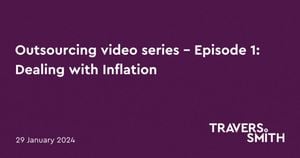The highly anticipated Netflix series, Apple Cider Vinegar, takes viewers through the turbulent story of Belle Gibson, the Australian wellness con artist who fabricated claims of curing her terminal brain cancer through alternative medicine. The six-part drama, inspired by the book The Woman Who Fooled The World, details Gibson's rise to fame within social media circles and subsequent fall from grace after her deception was uncovered.
Gibson's narrative begins as she captures the hearts of hundreds of thousands on Instagram, presenting herself as someone who miraculously overcame serious illness through holistic therapies, vastly popularizing her image as the embodiment of hope for people grappling with cancer. “This is a true story based on a lie,” Kaitlyn Dever, who portrays Gibson, states at the onset of the series, directly addressing the viewers to clarify the gravity of Gibson's deception.
Belle Gibson, born on October 8, 1991, claimed to have been diagnosed with various cancers and even alleged she had months to live, leading her to promote and monetize her wellness methodologies through her app, The Whole Pantry. Over time, Gibson crafted her persona, replete with stylized images of organic food and wellness tips, garnering more than 200,000 followers—though Apple Cider Vinegar escalates this figure to over 2 million for dramatic flair. Her claims found themselves prominently featured on platforms by major corporations, leading to lucrative deals, including book releases.
Yet, as her empire expanded, scrutiny grew. An investigation by The Age revealed inconsistencies and brazen falsehoods about donations to charities and her very health. Gibson confessed to the Australian Women’s Weekly later, stating, “I am still jumping between what I think I know and what is reality.” The backlash was swift, and by 2017, the Federal Court found Gibson guilty of misleading conduct, resulting in a $410,000 fine which was compounded with additional penalties over the years. To date, she has failed to repay any of these amounts, leading to criticism of the justice system’s effectiveness.
Chanelle McAuliffe, one of Gibson's former friends and whistleblowers, expressed her disappointment at Gibson's lack of accountability. “It’s really disappointing... she hasn’t taken any accountability or offered any closure to the victims and the charities,” she remarked. Gibson’s story echoes the age-old narrative of deception and the consequential fallout not only for the perpetrator but also for the victims who believed her claims and potentially altered their healthcare choices based on her influence.
Over the years, Gibson continually reshaped her identity, even trying to adopt the persona of “Sabontu” within Melbourne’s Oromo community. Dr. Tarekegn Chimdi, the community's leader, stated it was concerning Gibson used the community name without justification, amplifying the discussion on her questionable medicine affiliations and attempts to disrupt conventional health narratives.
While the Netflix adaptation provides reenactments and dramatizations, including extreme episodes such as Gibson reportedly faking seizures or crashing funerals, it shines light on how social media can catapult individuals to immense notoriety based on fabricated truths. These actions inevitably bring the ethics of wellness following and influencer culture to the forefront of public inquiry.
With the series out of Netflix, culture critics and audiences alike will reflect on Gibson's staggering narrative, igniting conversations about accountability, ethical practices within health communications, and the very real consequences of fraudulent health claims. This former influencer's saga serves as both cautionary tale and investigative glimpse, promising to capture discussions about the integrity of healthcare choices inspired by celebrity narratives.
The complex layers of Belle Gibson’s story serve as fertile ground for the series to explore not simply her rise and fall but also the piquant social mythos surrounding cancer narratives. Societal queries launched by her life highlight not only the dangers of alternative medicine but also the sobering responsibility borne by those who influence public perception.



